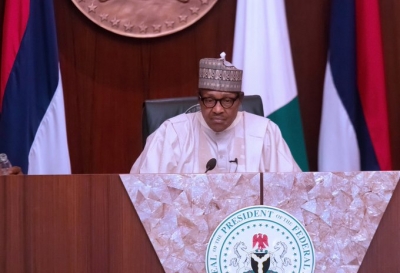News And PoliticsHealth And LifestyleSports And FitnessAgricultureOthersArts And EducationBusiness And MoneyCommunications And EntertainmentRelationship And MarriageStories And PoemsMotivationalsScience And TechnologyIT And Computer ScienceVehicles And MobilityPersonal Care And BeautyFamily And HolidaysFood And Kitchen
profile/6043MEEEE.jpg
Mafroosh12

Buhari: A Legacy Of Blames?
~2.6 mins read
During his 60th Independence Anniversary speech last week, President Muhammadu Buhari warned that “those in the previous Governments from 1999–2015 who presided over the near destruction of the countryâ€, should not now have “the impudence to attempt to criticise our effortsâ€.
The president then boasted that “no government in the past did what we are doing with such scarce resourcesâ€.
Now, no one should expect a president from one political party to lavish praises on the performance of their predecessors from opposing parties. It is in fact routine politics everywhere for political leaders to denounce or belittle the achievements of others who held the same office before them while at the same time emphasising or even inflating their own records.
For President Buhari in particular, denouncing previous governments for corruption and non-performance was a major campaign tactic throughout his long march to the presidency, but particularly in his contests against former Presidents Obasanjo in 2003, Yar’adua in 2007, and Jonathan in 2011 and 2015. But routine politics and campaign tactics aside, the president’s comment raises three questions that border on a fourth, at least for the non-partisan observer.
The first is why. The whole speech itself mainly sought to draw our attention to our shared destiny and the significance of our unity as a nation, and the need for celebration for achieving the diamond jubilee of nationhood against all odds. That is entirely appropriate and is exactly the sort of reminder Nigeria needs at the moment. But the claim that his immediate predecessors destroyed the country on such an occasion is hardly unifying, and certainly uncompromising.
The second question is whether the claim itself is valid. There is little doubt about it, all governments between 1999 and 2015 performed well below the expectation of Nigerians, regardless of the resources available to them. They also missed several opportune moments to set the country on a developmental path far beyond what they delivered. But how we go from there to ‘presiding over the near destruction’ of Nigeria is too much of a stretch to hold true.
There has always been an inherent political and economic instability in Nigeria arising from several competing forces and interests. Even the British, with all their vaunted skill in statecraft, struggled to hold Nigeria together in the 1950s, as has every government since then. Sometimes there is relative calm, but mostly it is one political conflict or another, often several at once.
That is how this country has always been. And it is why no Nigerian president or head of state has ever had it easy, at least not while still in office. Hardly anything negative happened in Nigeria between 1999 and 2015 that had not happened before, or since. Corruption and insecurity, in particular, were not new to Nigeria before 1999. And they remain with us still. ‘Destruction’ is therefore too strong a word.
The third issue of whether this government has so far out-performed its predecessors, even with ‘scarce resources’, is rather more complex and will require a logical sketch to approach. By May 2023, President Buhari’s government would have spent exactly half the time his three predecessors did combine. We would then expect his government to show more than fifty percent of whatever these previous administrations achieved in critical sectors of the economy, polity and society.
In other words, the president has just about one year left to add to whatever else he and his party might have achieved so far. Presidents are not remembered for their criticisms of other leaders, however sustained or justified these might be. Nor are they remembered for their eventual success at the polls, however, epic that might have been. Every president will be remembered only by the enduring impacts of their legacy on the country they led. Blaming others is not a legacy in itself.
profile/6043MEEEE.jpg
Mafroosh12

SARS Dissolution Test Of Governments Responsiveness?
~4.1 mins read
On Oct. 8, a wave of protests against the Special Anti-Robbery Squad (SARS) of the Nigeria Police Force erupted in many cities across the country.
The protests were triggered by a video trending online showing a young man allegedly shot by SARS operatives at Ughelli, Delta; an allegation the police denied.
The predominantly young remonstrators with the hashtag #ENDSARS sought the dissolution of the unit and an end to police brutality.
Open CHIJIOKE OKORONKWO
CHIJIOKE OKORONKWOFrom #EndSARS to Lauretta Onochie: The unpresidential art of courting controversy Hoodlums attack #EndSARS protesters, vandalise cars

OPINION
SARS Dissolution: A Test Of Government’s Responsiveness?
OCTOBER 14, 2020 AT 11:53:11 PM
On Oct. 8, a wave of protests against the Special Anti-Robbery Squad (SARS) of the Nigeria Police Force erupted in many cities across the country.
The protests were triggered by a video trending online showing a young man allegedly shot by SARS operatives at Ughelli, Delta; an allegation the police denied.
The predominantly young remonstrators with the hashtag #ENDSARS sought the dissolution of the unit and an end to police brutality.
By most accounts, the protests seemed to have been accentuated by resentments built up by previous and recent alleged incidents of extra-judicial killings, harassment and extortion on citizens by SARS operatives.
Worthy of note, before the situation snowballed into street protests, the federal government had waded in with a view to finding a lasting and assuaging solution.
On Oct. 4, at the directive of President Muhammadu Buhari, Vice President Yemi Osinbajo met with the Inspector-General of Police (IGP), Mohammed Adamu, at his residence over concerns on the activities of SARS.
to continue reading visit https://dailytrust.com/sars-dissolution-a-test-of-governments-responsiveness
Advertisement

Link socials
Matches
Loading...

